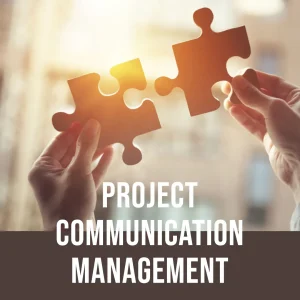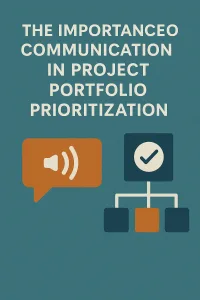Introduction
The terms contract administration and contract management are often used interchangeably, yet they represent distinct phases in the lifecycle of a contract. Understanding these differences is crucial for project teams and stakeholders aiming to ensure contract success.
- Contract Administration refers to the activities that take place before a contract is signed. This phase involves planning, setup, and the identification of potential partners, ensuring that all necessary elements are in place for a successful agreement. It focuses on the operational execution of the contract’s terms and compliance once the contract is in effect [6][8].
- Contract Management, on the other hand, encompasses the entire lifecycle of a contract, from drafting and negotiation to monitoring performance and renewal. This strategic function emphasizes value creation and alignment with project goals, ensuring that the contract delivers the intended benefits throughout its duration [11][14].
Both processes are integral to project management, as they help define the scope and deliverables of a project. Effective contract management and administration are essential for minimizing risks, enhancing supplier relationships, and ultimately achieving project objectives [4][13].
The theme of communication plays a pivotal role in the success of both contract administration and management. Continuous and open lines of communication between contract management teams and contract administration teams are imperative, especially as organizations grow. This collaboration ensures that all parties are aligned on contract terms, financial obligations, and project expectations, thereby reducing the likelihood of disputes and fostering positive relationships [1][15].
Recognizing the importance of communication in the context of contract administration and management is vital for project teams and stakeholders. By fostering effective communication, organizations can enhance contract performance, mitigate risks, and drive project success.
Understanding Contract Administration vs Contract Management
Understanding the distinctions between contract administration and contract management is crucial for ensuring contract success. Both processes are integral to the lifecycle of a contract, yet they serve different purposes and require different approaches.
Defining Contract Administration
Contract administration refers to the day-to-day management of contracts from the point of award until their completion or termination. This process involves ensuring that all terms of the contract are met, monitoring compliance, and managing any operational issues that arise during the contract’s execution. The contract administrator is primarily focused on the details of individual contracts, ensuring that all parties adhere to the agreed-upon terms and conditions [8][9]. Effective communication is vital in this phase, as it helps clarify expectations, address concerns promptly, and maintain positive relationships between all stakeholders involved [2].
Defining Contract Management
On the other hand, contract management encompasses a broader strategic oversight of the entire lifecycle of a contract. This includes drafting, negotiation, performance monitoring, and renewal processes. Contract management is focused on aligning contracts with organizational goals and creating value through strategic planning [10][12]. The contract manager takes a more holistic view, ensuring that the contract not only meets current needs but also adapts to future changes and challenges. Communication in this context is essential for fostering collaboration among project teams and stakeholders, facilitating negotiations, and ensuring that everyone is aligned with the strategic objectives of the contract [3][14].
The Role of Communication in Both Processes
Communication plays a pivotal role in both contract administration and contract management. In contract administration, clear and consistent communication helps prevent misunderstandings and disputes, ensuring that all parties are aware of their responsibilities and any changes that may occur during the contract’s execution [2][13]. It allows for timely updates and feedback, which are crucial for maintaining compliance and addressing any operational challenges.
In contract management, effective communication is equally important as it supports strategic alignment and collaboration among stakeholders. It enables contract managers to negotiate effectively, manage expectations, and adapt to changes in project scope or objectives. By fostering open lines of communication, project teams can enhance their ability to respond to challenges and seize opportunities, ultimately leading to greater contract success [3][14].
While contract administration focuses on the operational aspects of managing contracts, contract management emphasizes strategic oversight and planning. Both processes are interconnected, and effective communication is the linchpin that ensures their success. By understanding these distinctions and the role of communication, project teams and stakeholders can better navigate the complexities of contract management and administration, leading to improved outcomes and stronger relationships.
The Role of Communication in Contract Administration
Effective communication is a cornerstone of successful contract administration, particularly in project management. Clear and consistent communication among project teams and stakeholders not only facilitates the smooth execution of contracts but also significantly enhances the likelihood of achieving project goals. Here are some key points to consider regarding the role of communication in contract administration:
- Importance of Clear Communication Channels: Establishing clear communication channels is essential for ensuring that all parties involved in a contract are on the same page. This includes defining roles and responsibilities, setting expectations, and providing updates on progress. When project teams maintain open lines of communication, they can quickly address any issues that arise, thereby minimizing the risk of misunderstandings and ensuring that contractual obligations are met effectively [5][10].
- Examples of Communication Tools and Techniques: Various tools and techniques can be employed to enhance communication in contract administration. For instance:
- Project Management Software: Tools like Asana, Trello, or Microsoft Project can help teams track tasks, deadlines, and responsibilities, ensuring everyone is informed about the status of the contract.
- Regular Meetings: Scheduled check-ins or status meetings can provide a platform for discussing progress, addressing concerns, and making necessary adjustments to the contract execution plan.
- Documentation: Maintaining thorough documentation of all communications, decisions, and changes related to the contract can serve as a reference point and help prevent disputes [3][12].
- Impact of Misunderstandings: Miscommunication can lead to significant challenges in contract administration, including disputes and delays. For example, if project teams misinterpret the terms of a contract or fail to communicate changes effectively, it can result in non-compliance with contractual obligations. This not only jeopardizes the project’s success but can also lead to legal ramifications and strained relationships between stakeholders. By fostering a culture of open communication and actively addressing potential misunderstandings, project teams can mitigate these risks and enhance overall contract performance [4][10][14].
Effective communication practices are vital for successful contract administration. By prioritizing clear communication channels, utilizing appropriate tools, and addressing misunderstandings proactively, project teams can significantly improve their contract administration processes, leading to better project outcomes and stronger stakeholder relationships.
The Role of Communication in Contract Management
Effective communication is a cornerstone of successful contract management, particularly in the context of project management. It not only facilitates the smooth execution of contracts but also ensures that all stakeholders are aligned with the contract objectives. Here are some key points highlighting the importance of communication in this domain:
- Strategic Communication with Stakeholders: Establishing clear and strategic communication channels with stakeholders is essential for aligning on contract objectives. This involves not only sharing the terms of the contract but also discussing the broader goals and expectations. When stakeholders are well-informed and engaged, it fosters a collaborative environment that enhances the likelihood of contract success. Regular discussions can help clarify roles, responsibilities, and expectations, which are critical for maintaining alignment throughout the contract lifecycle [10][11].
- Importance of Feedback Loops and Regular Updates: Implementing feedback loops and providing regular updates are vital components of effective contract management. These practices ensure that any issues or changes in project scope are promptly addressed, allowing for timely adjustments to the contract as needed. Regular communication helps in monitoring performance against the contract terms, ensuring compliance, and mitigating risks. It also encourages a culture of transparency, where stakeholders feel comfortable voicing concerns or suggestions, ultimately leading to better decision-making [8][12].
- Case Studies of Successful Contract Management: Numerous case studies illustrate how effective communication has led to successful contract management outcomes. For instance, in a project where a construction firm collaborated with local government, regular meetings and updates allowed both parties to address compliance issues proactively. This open line of communication not only resolved potential disputes but also strengthened the relationship between the contractor and the government, leading to a successful project completion ahead of schedule. Such examples underscore the critical role that communication plays in navigating the complexities of contract management [9][14].
The role of communication in contract management cannot be overstated. By fostering strategic communication, establishing feedback mechanisms, and learning from successful case studies, project teams and stakeholders can significantly enhance the effectiveness of contract management processes. This ultimately leads to improved project outcomes and stronger partnerships among all parties involved.
Challenges in Communication During Contract Processes
Effective communication is a cornerstone of successful contract administration and management, particularly in the context of project management. However, various challenges can impede this communication, leading to misunderstandings and potential project failures. Here are some key barriers that project teams and stakeholders should be aware of:
- Cultural and Language Barriers in International Projects: In global projects, stakeholders often come from diverse cultural backgrounds, which can lead to significant communication challenges. Differences in language can result in misunderstandings, where the intended message may not be accurately conveyed or interpreted. Additionally, cultural attitudes towards hierarchy and communication styles can further complicate interactions, making it essential for project teams to develop strategies that accommodate these differences to ensure clarity and mutual understanding [10][12].
- Differences in Stakeholder Priorities: Each stakeholder involved in a project may have distinct priorities and objectives, which can affect how they communicate and engage with one another. For instance, a contractor may prioritize cost efficiency, while a client may focus on quality and timelines. These differing priorities can lead to conflicts or misalignments in communication, as stakeholders may not fully appreciate or address each other’s concerns. Recognizing and addressing these differences early in the contract process is crucial for fostering effective dialogue and collaboration [9][14].
- Technological Constraints: While technology can enhance communication, it can also present challenges. Issues such as inadequate tools, lack of access to technology, or insufficient training on communication platforms can hinder effective information exchange. For example, if stakeholders are not familiar with a particular project management software, important updates may be missed, leading to confusion and delays. It is vital for project teams to ensure that all stakeholders are equipped with the necessary tools and knowledge to facilitate smooth communication throughout the contract lifecycle [2][6].
Addressing these communication barriers is essential for the success of contract administration in project management. By fostering an environment of open dialogue and understanding, project teams can navigate these challenges more effectively, ultimately leading to better project outcomes and stakeholder satisfaction.
Best Practices for Enhancing Communication in Contract Processes
Effective communication is a cornerstone of successful contract administration and management. It not only facilitates smoother interactions among project teams and stakeholders but also significantly impacts the overall success of contracts. Here are some actionable strategies to improve communication in these processes:
1. Establishing Clear Communication Protocols and Expectations
- Define Roles and Responsibilities: Clearly outline who is responsible for what within the contract administration process. This helps prevent misunderstandings and ensures accountability among team members [5].
- Create a Communication Chain of Command: Establish a structured communication hierarchy to streamline information flow. This is particularly important in complex projects where multiple stakeholders are involved [14].
- Set Regular Check-Ins: Schedule consistent meetings or updates to discuss contract progress, address concerns, and share insights. This proactive approach fosters transparency and keeps everyone aligned [12].
2. Utilizing Technology for Effective Information Sharing
- Implement Contract Lifecycle Management (CLM) Software: Utilizing CLM software can enhance communication by tracking every activity related to the contract. This technology sends real-time notifications to relevant stakeholders, ensuring that everyone is informed of updates and changes [10].
- Create a Centralized Contract Repository: Store all contracts and related documents in a single, accessible location. This reduces the risk of miscommunication and ensures that all team members have access to the latest information [6].
- Leverage Collaboration Tools: Use digital platforms that facilitate collaboration, such as project management software or shared document systems. These tools can help streamline communication and make it easier to share updates and feedback [8].
3. Encouraging an Open Culture of Feedback and Continuous Improvement
- Foster an Environment of Open Communication: Encourage team members to voice their opinions and concerns regarding contract processes. This openness can lead to valuable insights and improvements [12].
- Conduct Regular Customer Satisfaction Surveys: Gathering feedback from stakeholders can help identify areas for improvement in communication and contract management practices. This feedback loop is essential for continuous enhancement [13].
- Promote Training and Development: Invest in training programs that focus on effective communication skills for project teams. Well-prepared team members are more likely to engage in constructive dialogue and contribute to successful contract outcomes [5].
By implementing these best practices, project teams and stakeholders can significantly enhance communication in contract administration and management. This, in turn, leads to better project execution, stronger relationships with contractors, and ultimately, greater success in achieving project goals.
Conclusion
Effective communication plays a pivotal role in both contract administration and contract management. Throughout this discussion, we have highlighted several key points that underscore the significance of communication in ensuring contract success:
- Impact on Contract Administration and Management: Clear and consistent communication is essential for laying the groundwork during the contract administration phase, where objectives are defined, risks are anticipated, and timelines are established. This foundation is crucial for the subsequent contract management phase, which involves overseeing the execution of the contract and ensuring compliance with its terms. Miscommunication can lead to misunderstandings, delays, and ultimately, project failure [1][10].
- Prioritizing Communication: Project teams and stakeholders must recognize that prioritizing communication is not merely a best practice but a necessity. By fostering an environment where open dialogue is encouraged, teams can address issues proactively, clarify expectations, and enhance collaboration among all parties involved. This proactive approach can significantly mitigate risks and improve overall project outcomes [12][13].
The importance of communication in contract administration and management cannot be overstated. By committing to effective communication practices, project teams can enhance their ability to navigate the complexities of contracts, leading to improved project success and stakeholder satisfaction.
Find out more about Shaun Stoltz https://www.shaunstoltz.com/about/.
This post was written by an AI and reviewed/edited by a human.



